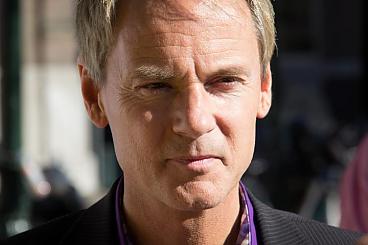Harry van Bommel: ‘Allies’ give support to ISIS
Harry van Bommel: ‘Allies’ give support to ISIS

Almost eighteen months ago, under the leadership of the United States, a military intervention against ISIS began in Iraq and Syria. Since then it has to be said that the aims of this action have not been achieved.
At the onset of the air-raids Barack Obama stated that the destruction of ISIS was the goal. Last month this appeared to have been reconsidered, when Obama spoke about the containment of ISIS, which he suggested had been achieved. That was a day before the gruesome attacks in Paris. Shortly afterwards the highest-ranked American general publicly disagreed with the President, saying that ISIS was not contained.
The general was right. Although ISIS in Iraq has in places been driven back, it appears that its fighters earlier this year were capable in both Iraq and Syria of capturing important towns. In Syria they have lost hardly any ground, and in other parts of the world, for example in countries such as Libya and Yemen, which have descended into anarchy as a result of western actions, it is on the contrary on the rise. The attacks in Paris, but also those in Egypt, Turkey and Lebanon, demonstrate moreover that the influence of ISIS reaches a very long way.
Because of these disappointing results, it's all the more surprising that ISIS is not being seriously addressed in other ways. One might go further and say that western 'allies' are offering regular support, direct or indirect, to ISIS and other Al-Qaeda-like organisations.
A telling example is the continuing stream of foreign fighters. Most of these travel via Turkey to join ISIS and comparable groups. Since the air-raids began, their numbers have more than doubled. There are now an estimated 30,000 of them, more than 5,000 from EU member states. To date Turkey has refused to close its border in response.
Meanwhile ISIS remains far and away the richest organisation of its kind. The bulk of its income is generated in its own region, but much also comes from outside. Persistent reports indicate that part of the oil from the ISIS-controlled region, which produces an income of some $50 million per month, is exported to Turkey.
In addition rich sympathisers in, for example, Saudi Arabia and Qatar, are financing ISIS, but also, and primarily, the Al Qaeda branch in Syria, Al Nusra, despite a UN agreement banning this.
ISIS remains armed to the teeth, with weapons in large part seized from the Iraqi army, but many also coming from western 'allies'. Reports that weapons supplied via Turkey by Saudi Arabia and Qatar have fallen into the hands of radical jihadist organisations were already around in 2012. The same goes for American armaments supplied to rebels in Syria.
One might add here that Turkey, in the guise of participating in the fight against ISIS, last summer began bombing Kurdish fighters, at a time when these same forces represent the most important ally of the West against ISIS.
Because terrorism cannot be fought with air-raids, more efforts must be made along other avenues. It is completely unacceptable that this is scarcely happening and that western 'allies' are at the same time playing a double role. The fight against ISIS and other radical jihadist organisations will only be credible if an end is put to this.
This article first appeared, in the original Dutch, on 17th December 2015 in the regional newspaper the Leeuwarder Courant.
- See also:
- World
